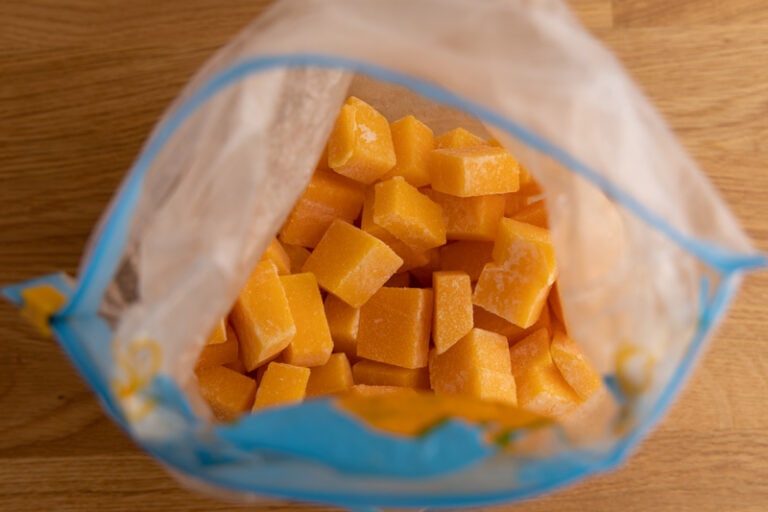How Long Does Zucchini Last and How to Tell if It’s Bad?
Here’s all you need to know about the shelf life and spoilage of zucchinis. Learn how long zucchinis last, how to store them, and how to tell if zucchini is bad.
Bought a bunch of zucchinis, and not sure if you can use all of them before they spoil? How long does zucchini last?
Or maybe yours sit in storage for a few days already, and you’re wondering what are the spoilage signs you should look for.
Sounds familiar? If so, this article is for you.
Let’s jump right in.
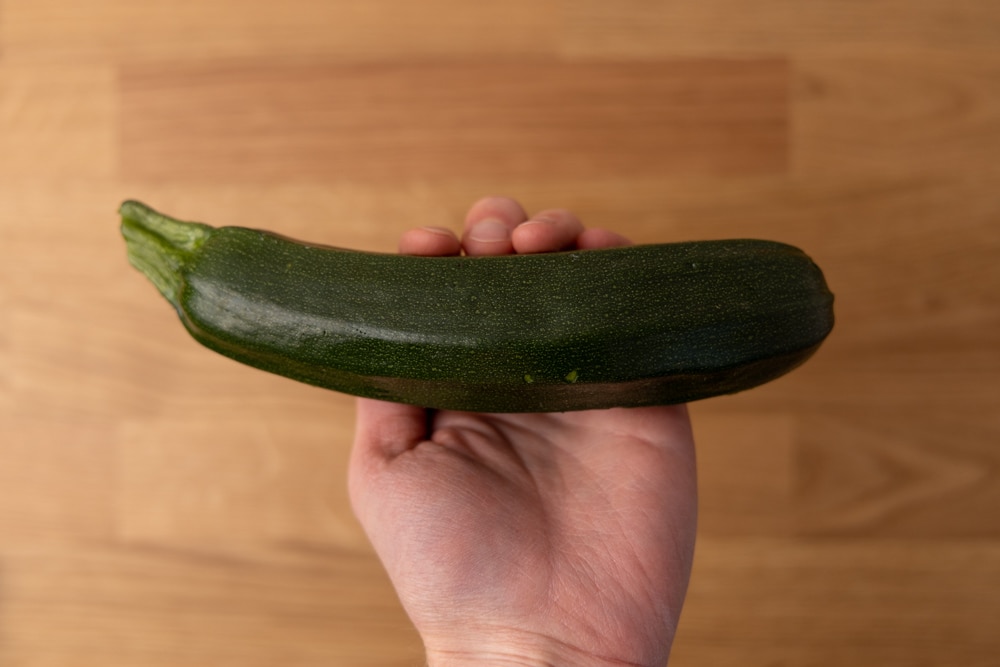
How Long Does Zucchini Last?
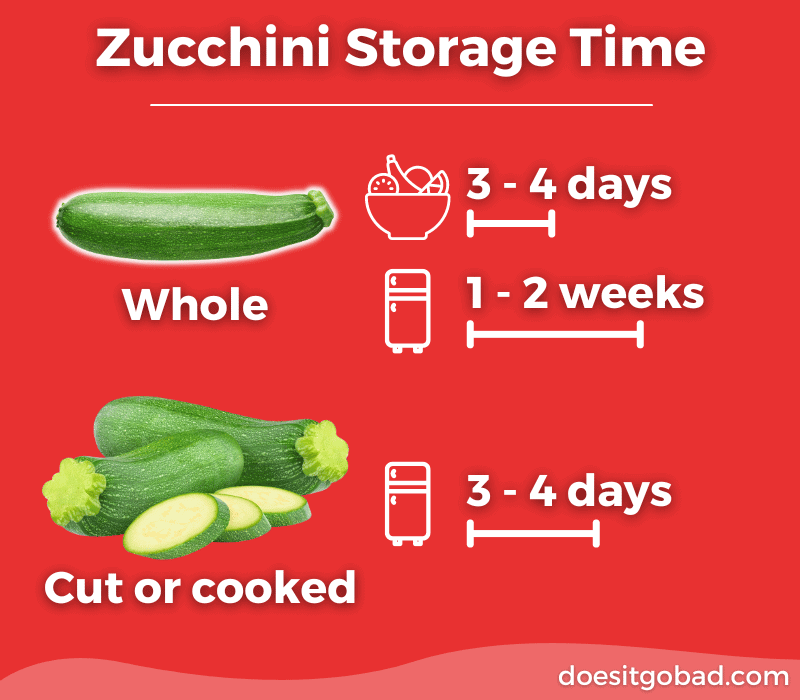
Fresh zucchini lasts for up to two weeks in the fridge or about 3 to 4 days at room temperature. Cut or sliced zucchini lasts for 3 to 4 days when sealed tight in the refrigerator, and the same is true for cooked zucchini.
If those storage periods are too short for your needs, you can always freeze zucchini.
Summer squash, such as zucchini, doesn’t keep nearly as long as winter squash (e.g., butternut or spaghetti squash) and lasts only up to two weeks if you do everything right.
But before we get to how you should store zucchini, let’s cover how to select one in the produce aisle.
| Counter | Fridge | |
|---|---|---|
| Zucchini (whole) | 3 – 4 days | 1 – 2 weeks |
| Zucchini (cut) | 3 – 4 days | |
| Zucchini (cooked, leftovers) | 3 – 4 days |
Selection
To get the longest storage time, make sure you choose only the best ones. That means:
- selecting small and firm ones with tender and glossy skin (see below)
- choosing ones free of blemishes and any visible signs of decay
- avoiding large ones with dull-looking skin because they usually have large seeds and stringy flesh
Zucchini is (usually) harvested at a very immature stage before the seeds start to grow and harden, and the skin goes dull and thickens. Those are the zucchinis we’re looking for.
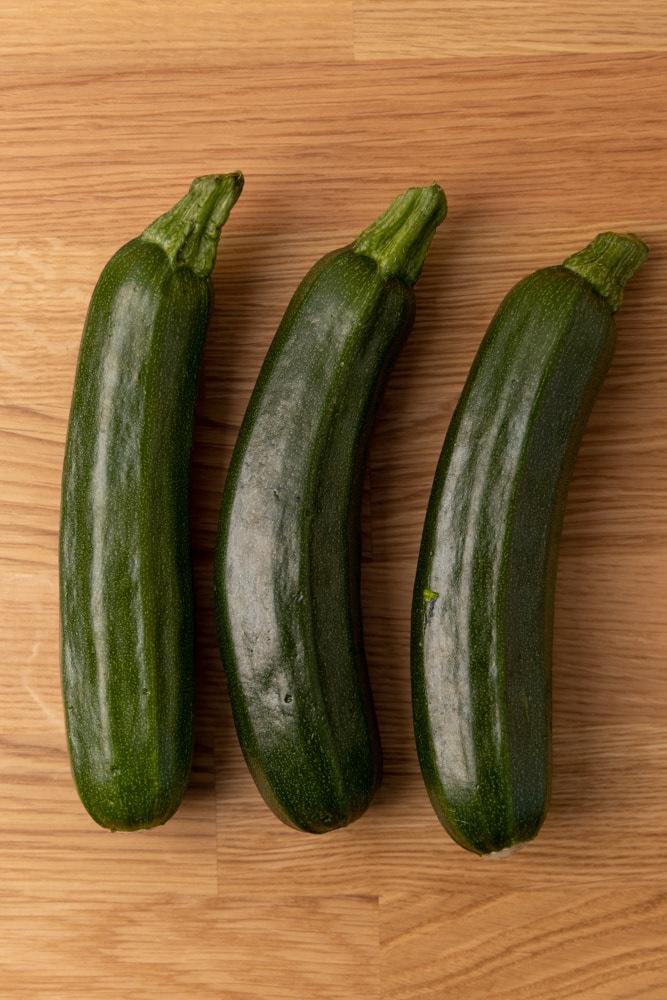
Cooked Zucchini
Cooked zucchini lasts 3 to 4 days sealed tight and refrigerated, and the same is true for most dishes that include zucchini. Let the zucchini or dish cool to about room temperature, then transfer to an airtight container and into the fridge within two hours of cooking.
Those 2 hours are also known as the 2-hour rule.
It’s up to you if you follow that rule to a tee, but if you leave that cooked zucchini out for more than a couple of hours (say, overnight), toss it. It’s no longer safe to eat.
Using Excess Zucchini
If those 1 to 2 weeks for fresh zucchini and 3 to 4 days for leftovers aren’t enough for you, here’s what you can try:
- freeze the zucchini so that it lasts for months
- double or triple the portion and freeze the leftovers (e.g., you can freeze zucchini bread)
- bake something that’ll disappear in hours, for instance, zucchini bread (here’s how to store zucchini bread) or zucchini muffins
Out of the three, the second option is by far the easiest. You simply cook more of whatever you’re cooking anyway. So instead of cooking two days’ worth of zucchini soup, you make enough for a week and freeze the leftovers.
This way, you both use the veggie and save time later on. Just make sure the dish you’re prepping freezes well.
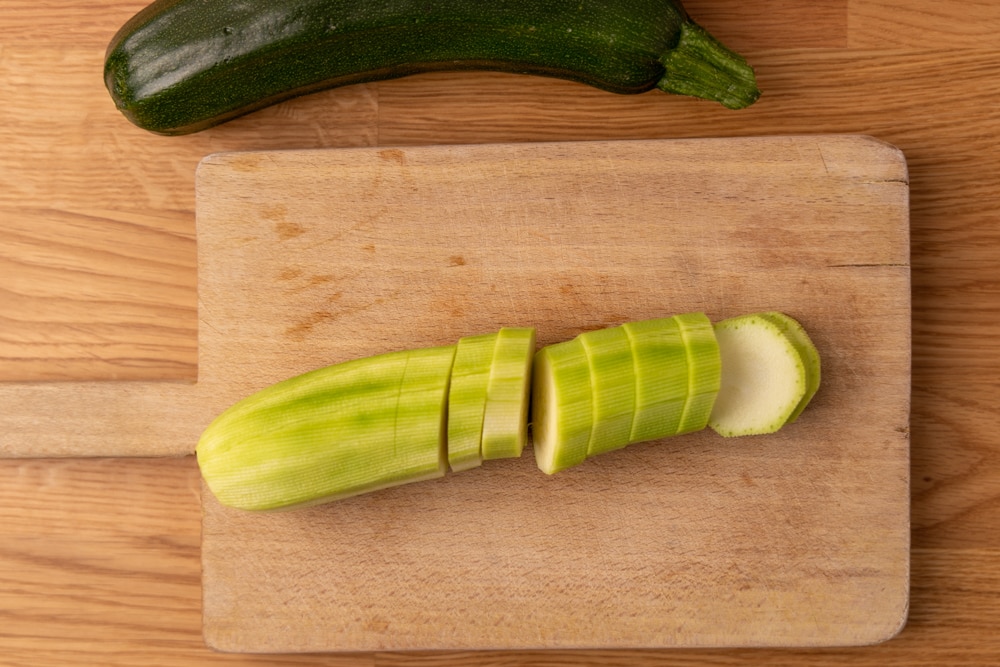
How To Store Zucchini
Zucchini should be refrigerated. Place it in the crisper drawer, or put it in a ventilated bag on a shelf near the door.
If you need the zucchini to last only a couple of days, you can let it sit at room temperature.
The optimum temperature for zucchini is 41°F-50°F (or 5°C-10°C), which is a bit warmer than what’s (probably) in your fridge.
Because of that, I suggest going with the veggie drawer or keeping the squash near the door. Both places tend to be a bit warmer, so either fits the bill.
Storing zucchini below 41°F (or 5°C) can cause chilling injury that shortens the veggie’s shelf life, so choosing a slightly warmer place in the fridge is actually important.
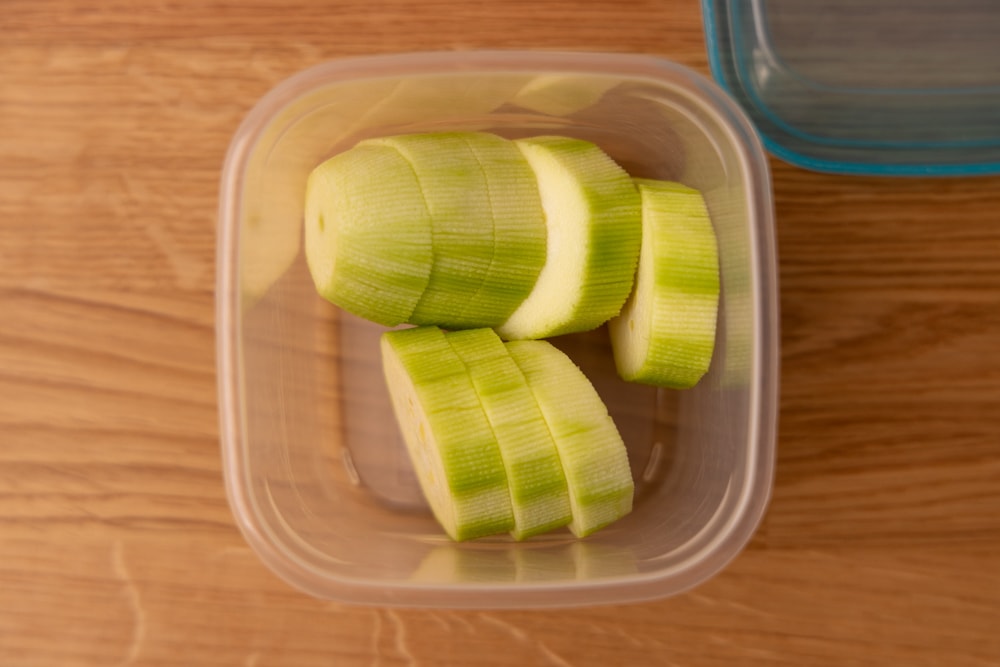
The second factor that’s important is humidity.
Zucchinis prefer high relative humidity, which is why the crisper is the perfect storage spot for them.
If there’s no space in yours, store them in a perforated bag, or leave a resealable bag half open. That allows air circulation but also traps some moisture, keeping the humidity high.
Next, let’s talk about any zucchini leftovers that you may have.
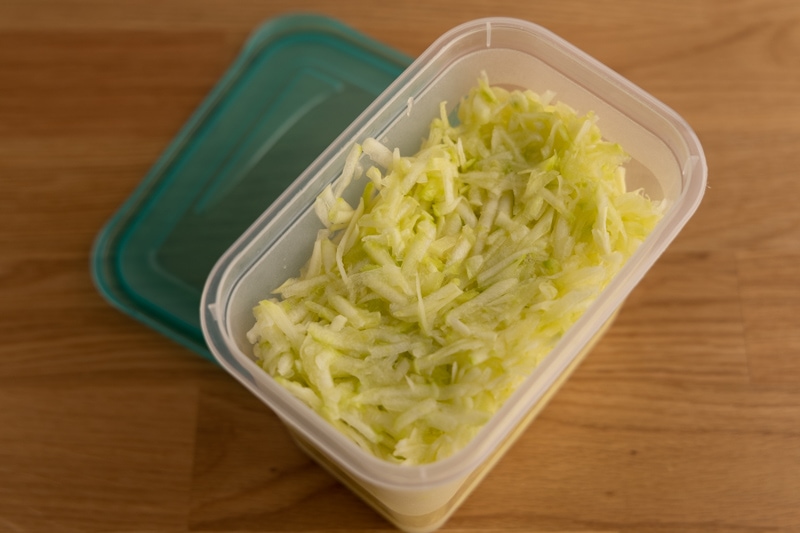
Does Zucchini Need to Be Refrigerated?
You don’t have to refrigerate zucchini, but it’s the recommended storage method because it significantly increases storage time. If you leave zucchini at room temperature, it’ll retain good quality for only 2 to 4 days, while when you refrigerate it, it’ll last for up to two weeks.
Because of that, I recommend leaving zucchini at room temperature only if you can’t fit it in your fridge. And if you’re forced to store it outside your refrigerator, choose a cool and dry place with good airflow.
Last but not least, remember that zucchini degrades quickly without refrigeration, so make sure you use it as soon as possible for best results.
Cut or Cooked Zucchini
Sliced, cubed, cut, or cooked zucchini needs to be refrigerated. Transfer what you have to an airtight container, place it in the fridge, and use it within 3 to 4 days.
If you’re storing cooked zucchini, let it cool to about room temperature first. But make sure the cooling period isn’t longer than 2 hours.
If you’re considering cutting your zucchini ahead of time, make sure to prep enough for 3 to 4 days, not a whole week. That’s because it’s not safe to store the leftovers for more than 4 to 5 days.
(Many meal preppers do two batches of cooking every week because of that.)
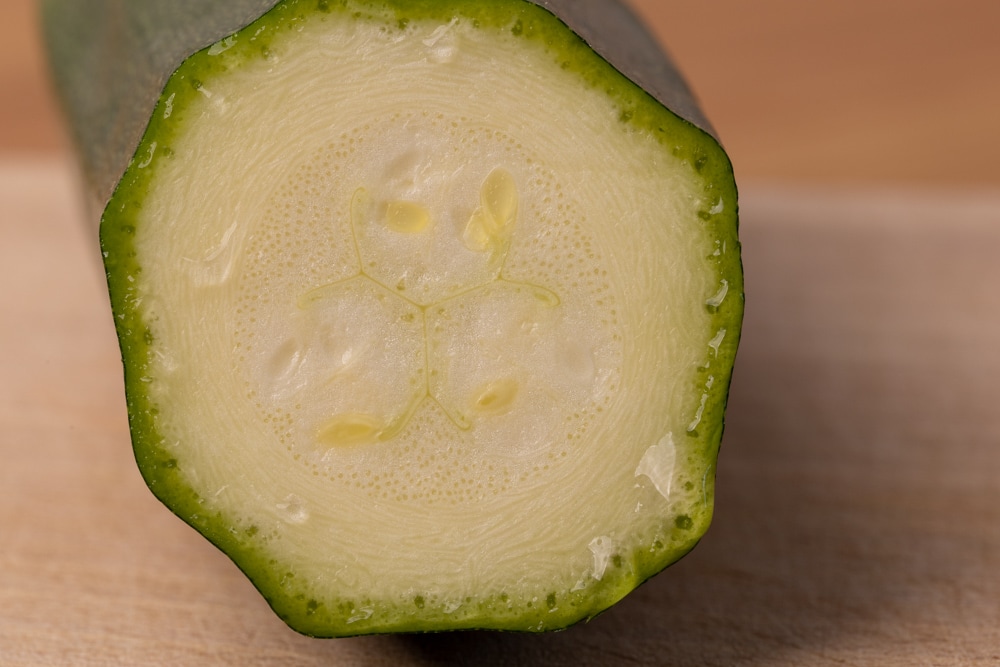
How to Tell if Zucchini Is Bad?
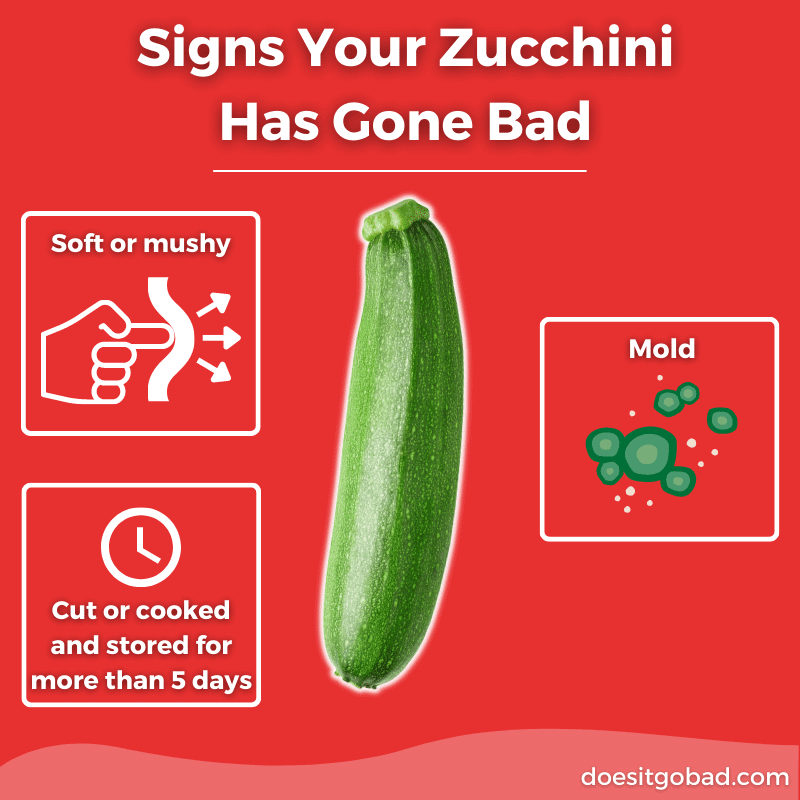
Discard zucchini that:
- Has large rotten spots. You can cut off a few minor bad spots or blemishes, that’s for sure, but if the decay is taking over, let the veggie go.
- Is shriveled, soft, mushy, or has wrinkled skin. All of those are symptoms of the zucchini being old and losing most of its water. If the veggie gets to this point, it’s no good.
- Are moldy. If you notice mold or any other funny business going in an airtight container with cut or cooked zucchini, discard all of its contents. That stays true even if there’s only one moldy cube and the rest seems fine.
- Is pre-cut and sits in the fridge for more than five days. That zucchini might still be okay to eat, but you never know. Better safe than sorry.
As always, if you notice anything else about the veggie that doesn’t seem right, trust your gut and toss the zucchini.
Except if that zucchini has large seeds or stringy flesh. That doesn’t necessarily mean it’s bad.
Let’s talk about that.
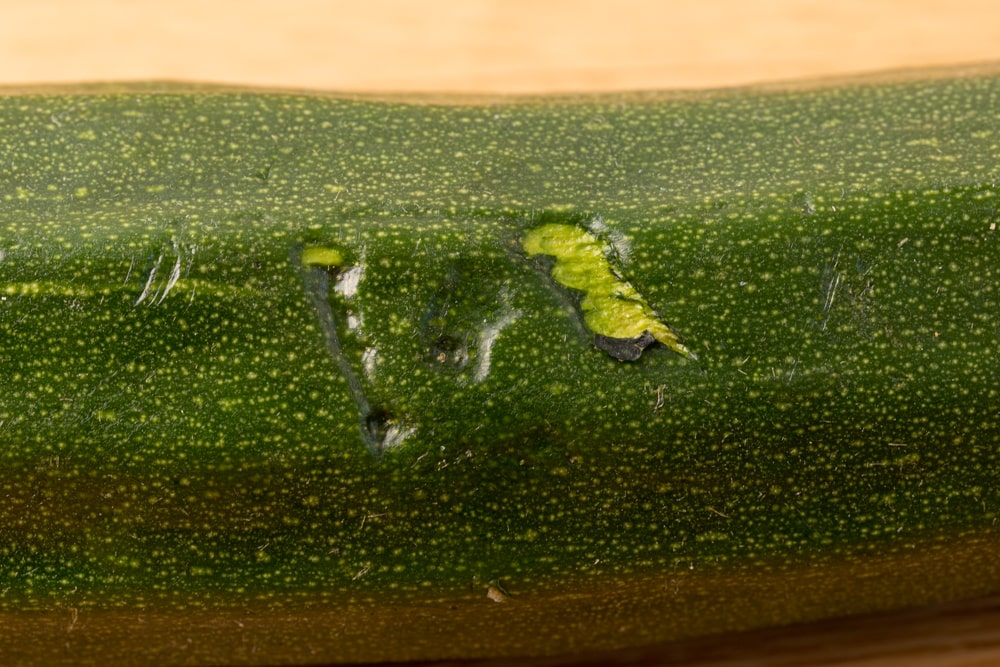
Zucchinis With Dull Skin, Large Seeds, and Stringy Flesh
Zucchinis with dull skin, large seeds, and stringy inner flesh were harvested late, when the fruit had already matured. These aren’t that great quality-wise, but they are still edible.
Whether you use them or discard them is up to you. Those zucchinis don’t taste that good, which might bother you (or not).
If the seeds are hard and the flesh completely pithy, it’s probably best to toss that zucchini anyway.
But if you’re okay with the zucchini tasting okay-ish, feel free to use it in a recipe that doesn’t rely on the veggie for its taste (i.e., something other than creamy zucchini soup). It might turn out quite alright.
Alternatively, you can cut out the stringy flesh and the seeds in the middle and use the rest. What’s left won’t look pretty, but you’ll get the most out of what you’ve got.
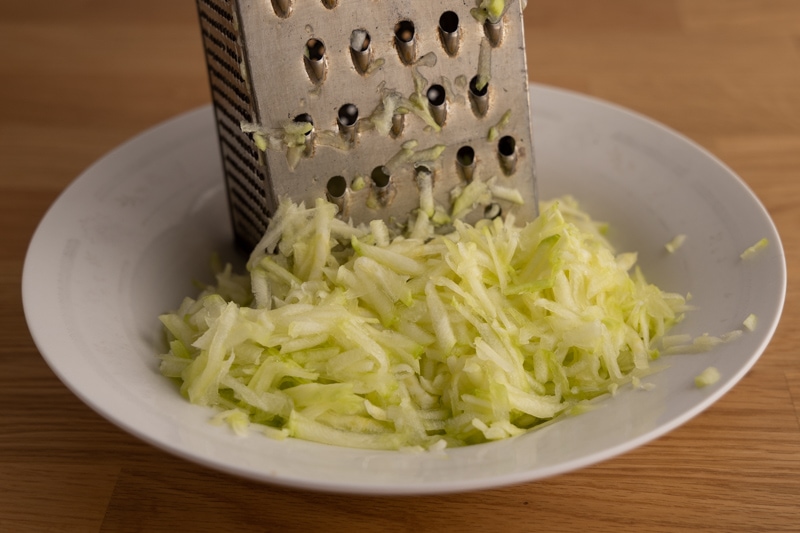
Zucchini Shelf Life and Spoilage Summary
Thank you for reading this short guide on zucchini. Let’s briefly recap what we’ve covered above:
- How long does zucchini last? A whole fresh zucchini lasts for 1 to 2 weeks. Once you cut it up, it keeps for 3 to 4 days, and the same is true for cooked zucchini.
- How to tell if zucchini is bad? Toss soft, leaky, and mushy zucchinis and ones with large bad spots. For cut and cooked zucchini, ditch ones that grow mold or sit in the fridge for more than five days.
- How to store zucchinis? Refrigerate zucchini in the crisper drawer or in a perforated bag near the fridge door. Cut, peeled, sliced, or cooked zucchini needs to be sealed tight in the fridge.
Rotten Records: Share Your Snap!
Caught some food past its prime? Upload your photo to “Rotten Records” and help others spot the signs of spoilage. Every image makes our food community safer and more informed!
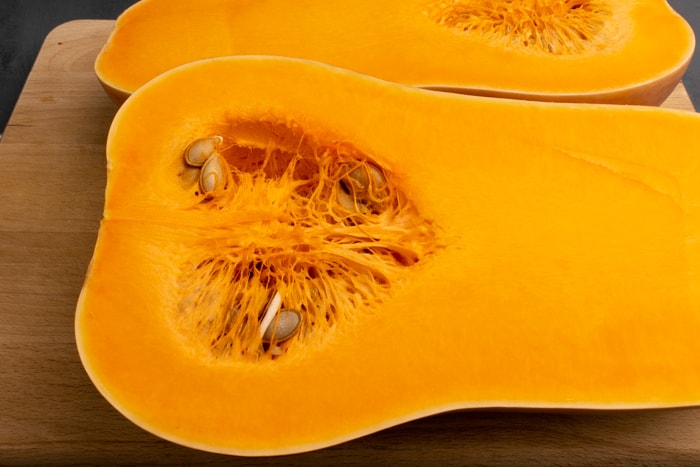
![How to Tell if Celery is Bad? [3 Spoilage Signs]](https://www.doesitgobad.com/wp-content/uploads/Celery-Spoilage-Signs-1-768x512.jpg)
![How Long Does Kale Last? [+ Tips to Make It Last Longer]](https://www.doesitgobad.com/wp-content/uploads/how-long-does-kale-last-infographic-1-1-768x512.jpg)

